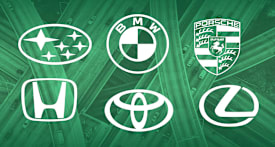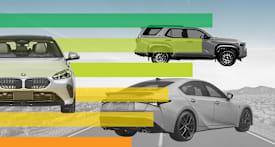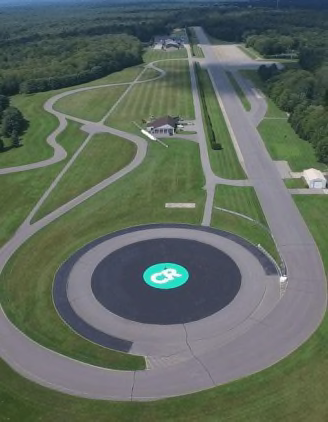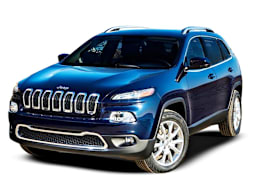The Cherokee finally gives Jeep a small SUV for those who want the brand's trail cred, but don't want to pay Grand Cherokee prices. While it does offer a lot of workhorse capability for this class, it fails to get a lot of the day-to-day basics right.
The list of flaws is long. Performance and fuel economy from the four-cylinder engine are pathetic. It struggles and feels underpowered, while returning only 22 mpg overall, which makes the Cherokee one of the least fuel-efficient models in this category. The V6 is far more pleasant and is definitely the better choice, but it still isn't particularly quick. The nine-speed automatic transmission may give the Cherokee bragging rights, but it delivers rough, unrefined and ill-timed shifts. Thick roof pillars hurt visibility and the driving position is awkward. Handling is competent but dull, and the ride is jittery.
Access and cargo room are OK.
The Cherokee feels half-baked, as if it was rushed to market, despite a delay of almost nine months from its initial launch date.
On the plus side, the Jeep is relatively quiet and has a roomy rear seat. It also offers a plethora of luxury-level features and high-tech electronic safety gear. The Uconnect 8.4 touchscreen combines top-level connectivity with friendly usability. If you need your small SUV to tow 4,500 pounds, or tackle tough off-road conditions, the Cherokee may be your only choice. However, most small-SUV buyers don't need those capabilities.
In the end, neither of the two Cherokees we tested scored well. There are many better choices, especially if you don't need that Jeep badge on your SUV.


























